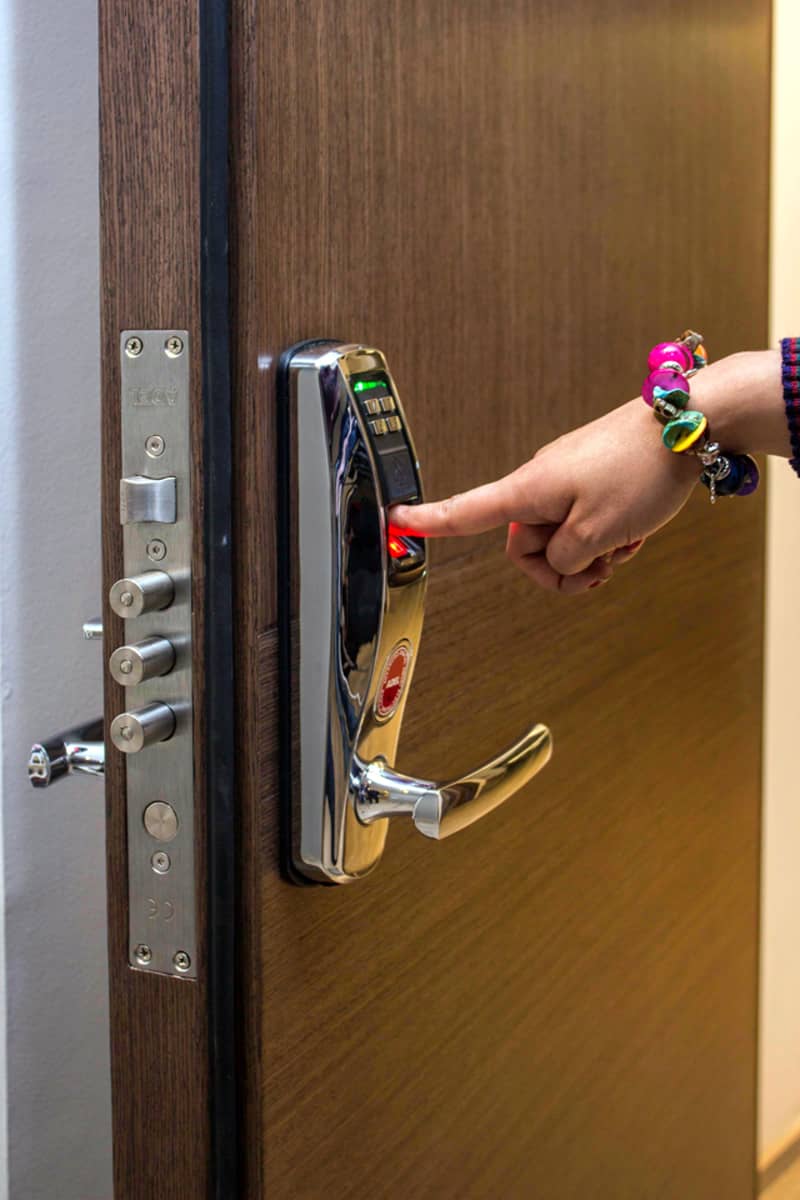Smart locks are one of the most innovative smart home devices that have recently appeared in the consumer tech market. Once you begin using a smart lock, you might be surprised how much it can offer in terms of home security and convenience.
In this article, we’ll explore the various types of smart locks and its common features and advantages. Perhaps the practical uses of a smart lock may intrigue you to consider upgrading your traditional key locks.
Types of Smart Locks
It did not take long for smart locks to become one of the hottest selling gadgets in the market. As demand increases, thus you would find many different types of smart locks. This is a pro for consumer choice but deciding which one to go for can cause a minor headache. Therefore, we will also look into some typical use cases to help you decide:
Bluetooth Smart Lock
This type of smart lock connects to your smartphone via Bluetooth and automatically unlocks the door when the connected device is within range. They are a convenient choice for users who do not want to rely on Wi-Fi and still want a secure entry control.
Example Use Case:
This type of smart lock can be very convenient if your hands are always full when you reach home. It also allows you to quickly enter your home without needing to fumble around for your phone. For enhanced security, the lock usually only allow access if a virtual key is present – this could be a key fob, a smartphone or a smartwatch.
Wi-Fi-Enabled Smart Lock
Wi-Fi locks connect to your home network, which allows you to control them remotely from anywhere as long as your device is connected to the Internet. They typically come with mobile apps, enabling you to monitor entry logs and receive real-time alerts.
Example Use Case:
With W-Fi enabled locks, you can control who to grant access to. For better security, you should get a smart lock with a high quality built-in camera so you can clearly see who is it that you are granting access to.
Keypad or Touchscreen Smart Lock
This type of smart locks feature a keypad or touchscreen. To open the lock, you would need to enter a unique code for access. Some models allow you to send temporary codes to grant access to authorized visitors, like servicemen and courier personnel.
Example Use Case:
If you have young kids, you would probably be reluctant to let them hold a set of keys. Also think about the number of times you had have to pass your spare keys to visiting friends or relatives who are staying with you. Whenever you have to pass your house keys to someone else, are you not also worried that they may lose the keys? And if they do lose it, you will surely be worried sick about who might use the keys to intrude into your house. With a smart lock that allows you authorize temporary or permanent access codes, these worries will no longer be a concern.
Biometric Smart Lock
Biometric locks use fingerprint recognition to grant access. They provide a higher level of security as fingerprints are unique to each person. Some advanced models also come with facial recognition which is powered by artificial intelligence computer vision.
Example Use Case:
If you never have to grant access to visitors, then this type of smart lock may serve your needs well. Perhaps you have a private office in your house or a hobby room that only you enter. The higher security feature will give you more peace of mind that no one else can gain entry into your private rooms.
Radio Frequency Identification (RFID) Locks
RFID smart locks use key cards or fobs to unlock. They are commonly used in hotels and offices, but you might also see them in residential settings. Some RFID models support keypad access too.
Example Use Case:
RFID locks can be a good fit for users who prefer not to use a smartphone or app to control access. This means no one else can open the lock without the card or fobs. This type of lock is usually suitable in settings where the visitor can return the access card or fob to the owner after the visit is finished.
Tech Tip: Protect your online privacy.
Online data privacy is such a hot tech topic these days. Start protecting your online privacy by using a reliable virtual private network (VPN) service.
I’d recommend using Namecheap’s FastVPN because it is easy to install and has a strict no logs policy.
Click or tap on the images or use my affiliate link to get your VPN offer and I may earn a commission if you make an online purchase at Namecheap’s website.

